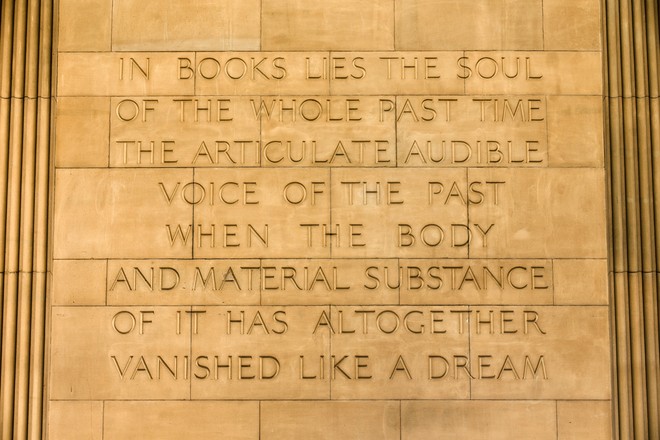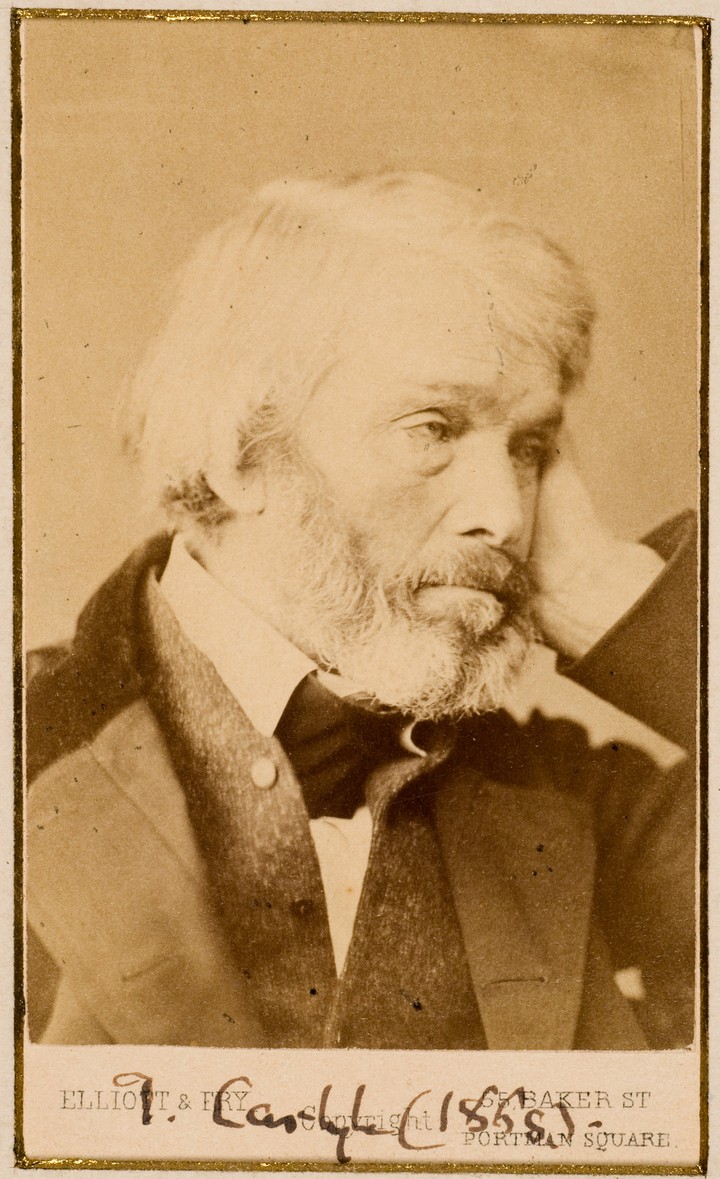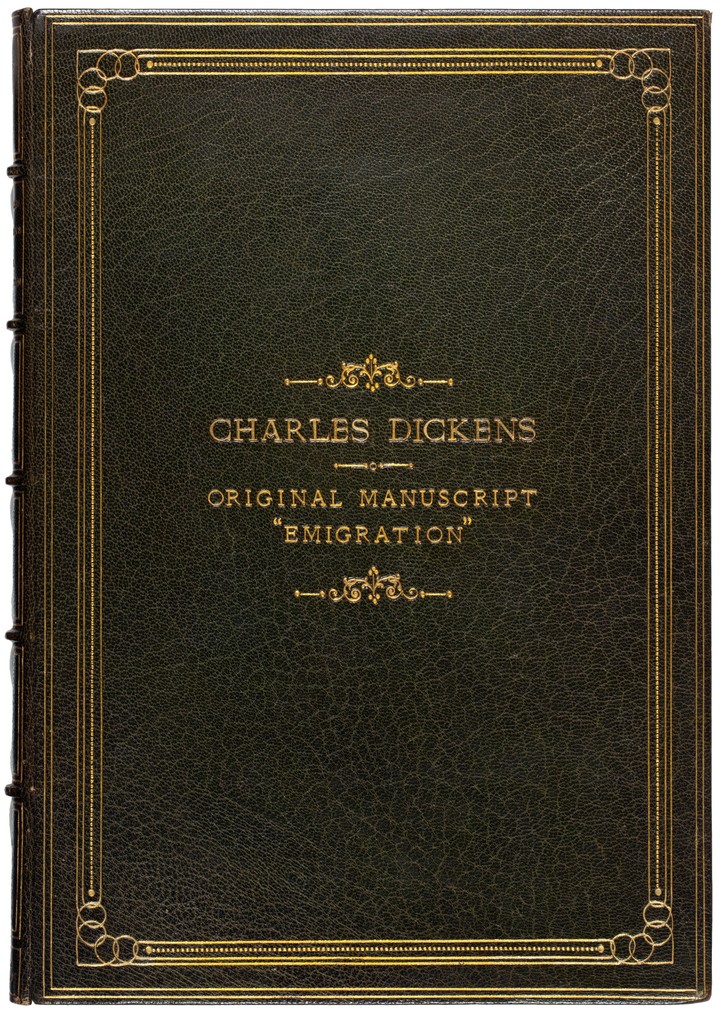Mitchell Vestibule Quote
1942
‘In books lies the soul of the whole past time the articulate audible voice of the past when the body and material substance of it has altogether vanished like a dream.’ – Thomas Carlyle, 1840
Etched into the eastern wall of the Mitchell vestibule, the words of Scottish philosopher Thomas Carlyle are from his influential Hero as Man of Letters lecture, the fifth in a series of six lectures presented in 1840 on heroes and hero worship. The stone was laid by the Beat Brothers, and carved by James Fowler, M Swan and A Sproule.
This famous quote captures the essence of the Library, which the principal librarian William Ifould and the Sydney press often referred to as ‘Everyman’s Library’. Ifould had tried hard and successfully changed the image and reach of the Library, as he believed that the wider public, not just the privileged few, should have access to its resources.
Living at a time when tertiary education was out of reach for most people, Carlyle also remarked, ‘the true university of these days is a collection of books’. These words were inscribed in the Great Hall of the Thomas Jefferson Building in the US Library of Congress in 1897.
On heroes and hero worship
Thomas Carlyle was a Scottish satirical writer, essayist, historian and teacher during the Victorian era. In need of money, between 1837 and 1840 he presented a series of public lectures, the last set of which analysed various influential heroes throughout the ages and became the basis for his most famous work, On Heroes, Hero-Worship, and the Heroic in History. The book compares different types of heroes such as Divinity (Wotan, paganism); Prophet (Mohamed); Poet (Dante, Shakespeare); Priest (Luther, Knox); Man of Letters (Johnson, Rousseau, Burns); and King (Cromwell, Napoleon).
Carlyle’s musings had a major impact on social theories, including both socialism and fascism. He believed that history is largely shaped by the impact of ‘great men’ (the Great Man Theory), yet also that all heroes are flawed, with heroism manifested through a person’s instinctive decisions during challenging circumstances. This contradicted traditional ideologies, which saw heroes as ‘morally perfect’. Carlyle’s writings and work were not only picked up by other philosophers of the time, but also by literary giants including Charles Dickens and John Ruskin.
An inspiration for Dickens
Thomas Carlyle and writer Charles Dickens met in London in 1840, and formed a close friendship. Carlyle described Dickens as ‘a fine little fellow ... a face of most extreme mobility, which he shuttles about – eyebrows, eyes, mouth and all – in a very singular manner while speaking ... a quiet, shrewd-looking, little fellow, who seems to guess pretty well what he is and what others are’ [1]. Dickens also held Carlyle in high regard, and told one of his sons that Carlyle was the man ‘who had influenced him most’ and his sister-in-law, that ‘there was no one for whom he had a higher reverence and admiration’ [2].
Footnotes
1.http://www.spartacus.schoolnet.co.uk/Jcarlyle.htm
2.http://www.spartacus.schoolnet.co.uk/Jcarlyle.htm



 Back to list
Back to list
